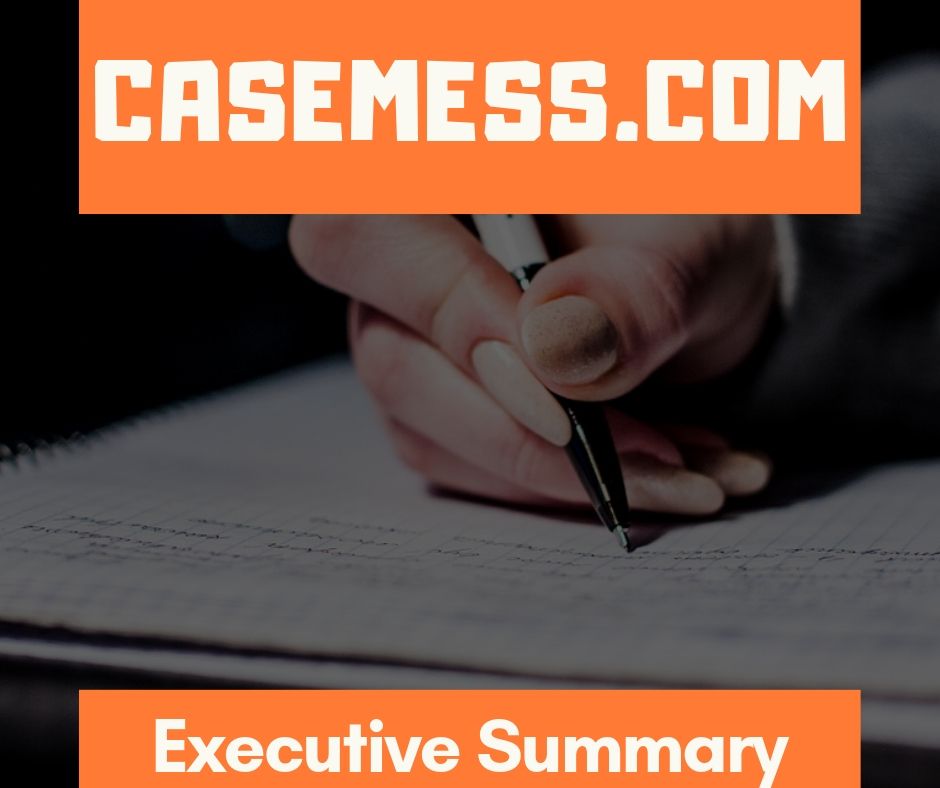Executive Summary of Ratios Tell A Story 2001 Case Study Analysis
Home >> Kelloggs >> Ratios Tell A Story 2001 >> Executive Summary
Executive Summary of Ratios Tell A Story 2001 Case Help
A crucial symbol for power and financial strength-- American industrialism of unmatched productivity and wealth, the strength of building a country which is in current times the resentment of the globe. On the report of Milton Friedman, the terms 'capitalism' has known to have extreme variable and extremely comparative significance. To some level, the industrialism is a term of opprobrium which represents the persecution of small modest companies through callous prodigious monopolies; while, near others considers it as a hope that symbolizes guys's flexibility in order to shape their own fates of economy. The unleashing energy and ingenuity of human to raise the living requirement of masses.
 According to Charles Fishman, Ratios Tell A Story 2001 Case Executive Summary is a gargantuan story of success in America as transformative and a secret force in the economy of America. The Ratios Tell A Story 2001 Case Executive Summary Effect and a Good Society elaborates the mega corporation's actions and take along the impact of their favorable and negative actions mostly on stakeholders. An idea has actually been promoted by the authors that if Ratios Tell A Story 2001 Case Executive Summary and other mega corporations fulfill the expectations of civil society in the matter of social well-being, security, health and the environment may function as a role model for moving the way company has been performed in the international market i.e. to do well-- undoubtedly, to do much better-- by doing good.
According to Charles Fishman, Ratios Tell A Story 2001 Case Executive Summary is a gargantuan story of success in America as transformative and a secret force in the economy of America. The Ratios Tell A Story 2001 Case Executive Summary Effect and a Good Society elaborates the mega corporation's actions and take along the impact of their favorable and negative actions mostly on stakeholders. An idea has actually been promoted by the authors that if Ratios Tell A Story 2001 Case Executive Summary and other mega corporations fulfill the expectations of civil society in the matter of social well-being, security, health and the environment may function as a role model for moving the way company has been performed in the international market i.e. to do well-- undoubtedly, to do much better-- by doing good.
Citation of Ratios Tell A Story 2001 Case Executive Summary as the epitome of capitalism in America involves utilization of guaranteed examples together with impressive realities and information for fuelling a captivating yet alluring concern--" How do we ensure that American capitalism creates a good society for all of us in the period ahead?"
It is in some way considered vital for the facility of what H. Lee Scott get away from throughout his use of term a decent society. Rather, a reputable thought school would perhaps explains a good society as a civilization i.e. identified through a high life quality with exceptional power of getting and ideal conditions of economy which were initiated through the companies that are successful in sustainability by displaying terrific requirements of ethics and constant going beyond the CSR (Corporate Social Obligation) limits to provide advantage to their communities at local level. As an illustration, this kind of society would simultaneously thought to be well balanced, progressive, productive, competitive and without social evils.
The society's stalwarts despite the reality that push for consistent growth and advancement is anticipated to highly promote the well-being of community. Such a sophisticated will of a society, in specific, continuously pursue development of items with eliminate inferior and work with those manufactured in an illegitimate method. Company in such type of societies go through strenuous measures of corporate governance. Effective policies of federal government relate to the laws of anti-trust guaranteeing that monopolies neither exist nor establish.
 Thinking about above mentioned example of a perfect society, it seems relatable for measurement where there is a contrast of contemporary in society of United States of America. Therefore, it showed alarming outcomes-- the domination of United States of America by massive organizations such as Ratios Tell A Story 2001 Case Executive Summary having the power and capability of affecting the whole usage patterns and choices of a country. Thus, it likewise consists of culture and economy of the nation. Nevertheless, these huge business may provide various advantages to the modern society in order to do so, however on a regular basis, the process of choice making have destructive impact. The important things which is worried to be more confusing is based on the economy of commercialism consisting of individuals who are responsible to make choices by themselves and deserve to handle fundamental resources required in efficiency which in contradiction are the decisions which are followed to in a grander strategy made under the organizational kinds of non-capitalists by the government.
Thinking about above mentioned example of a perfect society, it seems relatable for measurement where there is a contrast of contemporary in society of United States of America. Therefore, it showed alarming outcomes-- the domination of United States of America by massive organizations such as Ratios Tell A Story 2001 Case Executive Summary having the power and capability of affecting the whole usage patterns and choices of a country. Thus, it likewise consists of culture and economy of the nation. Nevertheless, these huge business may provide various advantages to the modern society in order to do so, however on a regular basis, the process of choice making have destructive impact. The important things which is worried to be more confusing is based on the economy of commercialism consisting of individuals who are responsible to make choices by themselves and deserve to handle fundamental resources required in efficiency which in contradiction are the decisions which are followed to in a grander strategy made under the organizational kinds of non-capitalists by the government.
Individuals as consumers are able to choose which undoubtedly favour such organizations in making them monopolistic in nature in an efficient manner as experienced in Ratios Tell A Story 2001 Case Executive Summary's case. Such real monopolist nature can not be discovered in the landscape of competitive commercialism. Considering that, it is mostly governed under supply and need of the laws, it is for that reason impossible that companies have the capability to grow at bigger scale and effort of relentless pressure on more company with overwhelming repercussions. For the case in point, the possibility of driving them towards facility to whatever conditions they are dealing with to please their providers, keeping terms of confidentiality or power effort of imbalanced bargaining. These all actions are in contradiction with the commercialism laws of America.
The concern is how come this matter can be fixed for ensuring that for society the benefits are developed through industrialism while keeping checks of its unfavorable impact? In result, the legal system of America failed in acknowledgment of organizations that may reveal potential development enough for supremacy of economy itself.
The ethical standards are constructed on the properties of principles that is a crucial concern under taking all societies along with large organizations who have the duty of keeping high principles of standards in their operations of company. The industrialism acceptance is the best system of economy and the incentive of bigger revenue engaging mega-corporations to comply.
The method of a company for its stakeholders is considered as a substantial element in such struggle. Historically, the requirement of mind-set was to succeed of the big organizations that has actually run counter for point of view adoption of stakeholder in the worth creation procedure. The requirement of big organizations to capture sustainable worth at present to see value of stakeholders is very important for the organizational development. Power of stakeholders is now thought be a reality in the environment of service at international level. Business leaders who tempt to fail for adoption of brand-new danger of mind-set put their corporations and careers in danger. Thus, it is essential for leaders of mega corporation in brand-new age to comprehend the distinction between old and new mind-set of stakeholder's worth and its effects on their organisation for initiation of a requisite course of action.
Conclusively, the problem of public policy need government intervention. Reasonably, the tightening up of laws of anti-trust impends however furthermore the lack of details is offered to people about present big capitalistic mega-corporations tend to be a considerable issue that needs to be addressed with abrupt effect. Application of these actions will function as the nascent measures followed to assure that industrialism in America creates a decent society for all in upcoming age.
